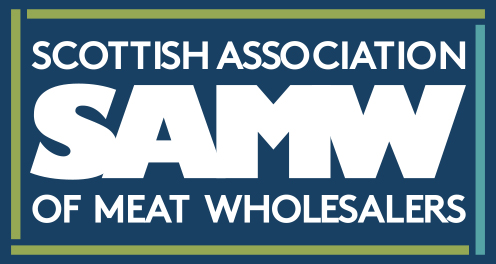Time to promote and support our domestic industry
It’s unnerving how much change has taken place over the past 12 months while, at the same time, how little has been achieved in terms of policy advances or the delivery of solutions to benefit Scotland’s red meat chain either in 2024 or beyond, says Ian Bentley, President of the Scottish Association of Meat Wholesalers.

Ian Bentley
“Balancing positives and negatives is a common element of business management across all sectors, of course, especially when energy costs remain high, inflation and interest rates plague us all, and cost of living pressures constrain consumers’ spending powers,” he said in his annual New Year summary.
“For Scotland’s red meat industry, in particular, 2023 will be noted for a degree of business upheaval, driven by changes of ownership, although it’s encouraging that we have suffered no loss of processing capacity during this process.
“More worrying is the continuing annual decline in livestock numbers, despite relatively strong prices for producers throughout the past year. While the decline in 2023 has been small in percentage terms, the drip, drip, impact on our shrinking breeding herd is approaching a critical point.
“I have said before that this should be a source of concern to Government and a stimulus to move forward with an agriculture policy which recognises the importance of the meat industry to Scotland’s economy and incentivises increases in sustainable production. However, we are still to see any detailed proposals along these lines, and I fear that continuing uncertainty will result in a further reduction in numbers in 2024.
“This trend has several consequences. One is that a reduction in domestic production opens the door to increased imports of meat from across the world, potentially from countries whose standards of quality, welfare, and sustainability are inferior to our own. This surely cannot be right, yet some of the recent trade deals agreed by the UK Government seem expressly designed to open up our country to these sources.
“Given that our climate and terrain is ideally suited to farming for sustainable meat production, we should be promoting and supporting our domestic industry rather than undermining it, as so often seems to be the case. I hope that in 2024 we shall start to see positive signs in this direction.
“We also hope for sensible moves in relation to the regulation of our industry. All too often, regulatory friction inhibits trade, as we have seen in recent months with the introduction of vet attestation requirements for exports. It is difficult to justify this additional bureaucracy and we hope it will not hinder trade through 2024.
“The processes surrounding vet attestation is a prime example of low policy implementation in both 2022 and 2023. Originally scheduled for launch in December 2022, the policy was first delayed until December 2023 and is now scheduled for practical introduction in April 2024. All that has been achieved so far is uncertainty for those seeking to run commercial meat export businesses.
“In addition, the attestation requirement appears set to add to difficulties already being encountered concerning the availability of sufficient qualified vets to keep our industry running smoothly. Vet recruitment is fast becoming a major issue across the country, indeed across the world, and tying up the vets we already have with ever more form filling is a poor use of their expertise.
“We remain positive and upbeat about the quality base on which the Scottish meat industry is founded, nevertheless, from stock breeding through processing to strong trade contacts at home and abroad. These factors have never been in doubt. It would be helpful though if some of the limiting impacts I’ve already mentioned are properly and finally dealt with in 2024. That is certainly our hope for the new year.”
